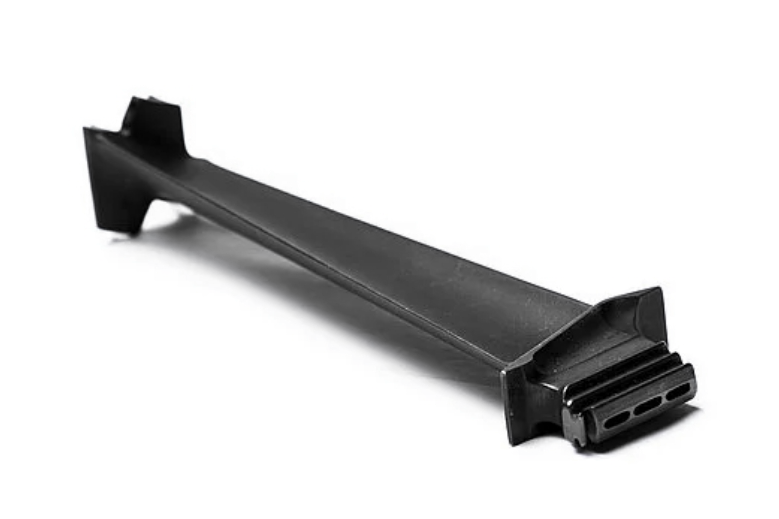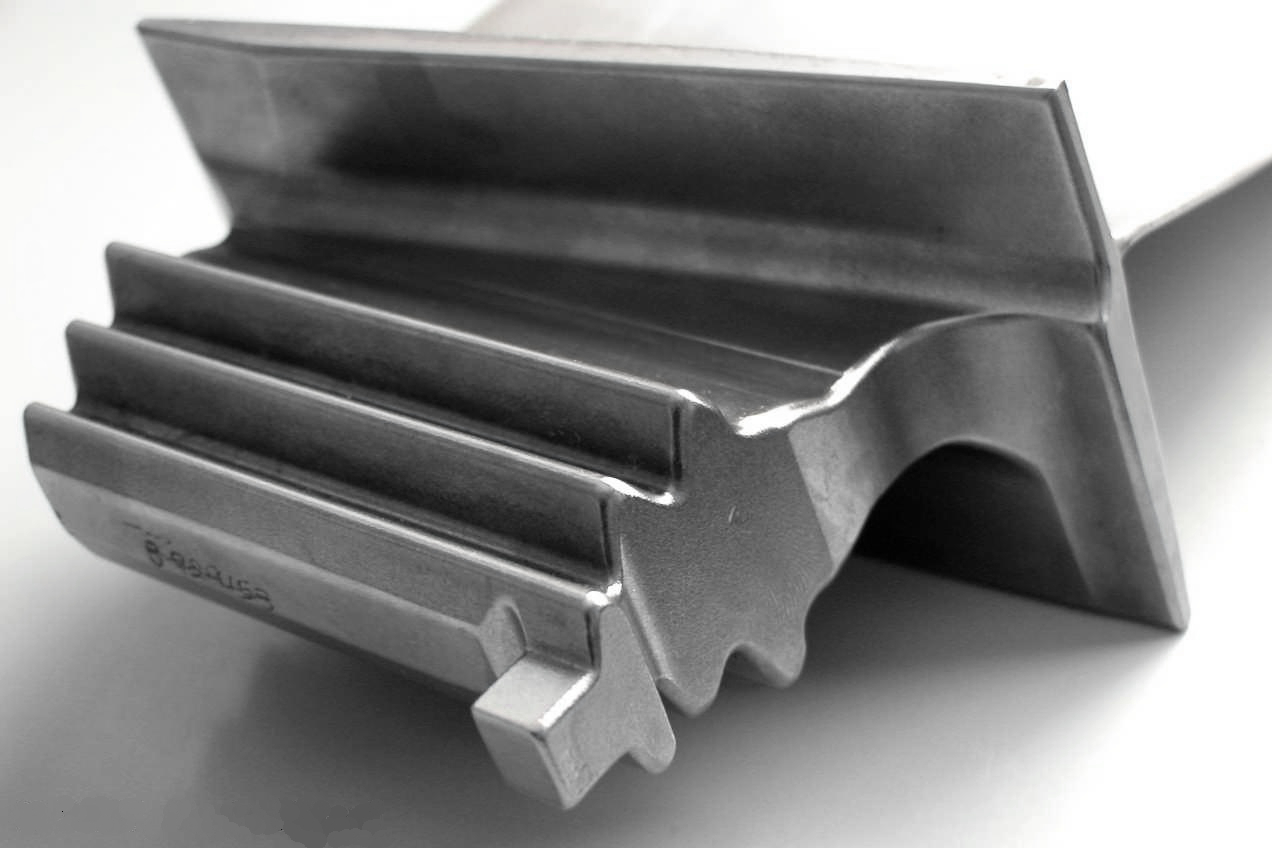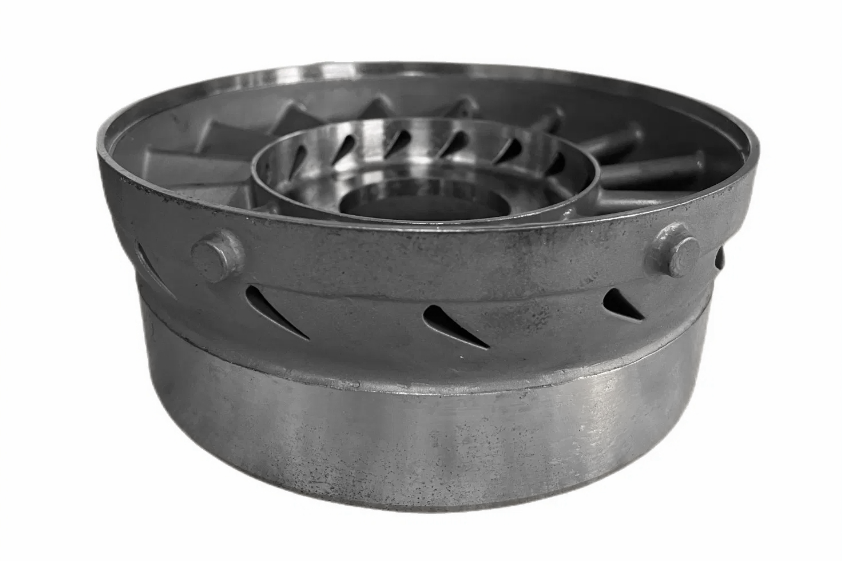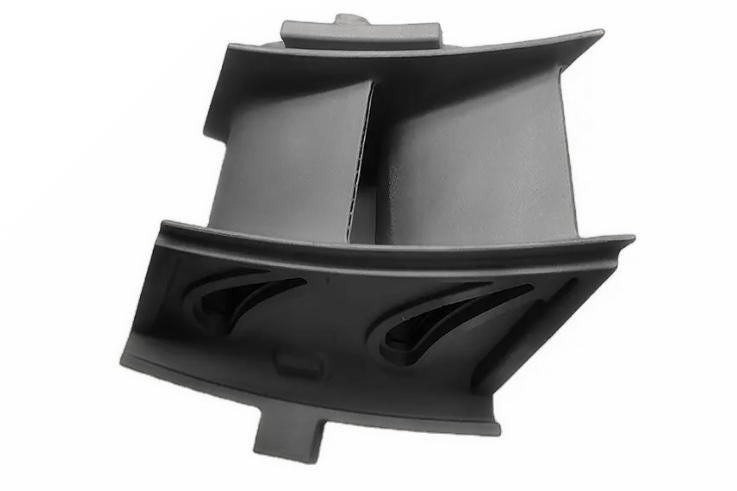TMS-196
About TMS-196 Superalloy
TMS-196 is a fifth-generation single-crystal superalloy recognized for its advanced high-temperature resistance and mechanical strength. It has no widely accepted equivalent standards, positioning it as a specialized alloy for demanding industries like aerospace and energy.
Its primary application lies in high-stress components such as turbine blades and jet engines, where it provides reliable performance under extreme conditions. With high fatigue strength and long service life, TMS-196 offers exceptional durability in environments subject to intense thermal cycling.
TMS-196 Basic Introduction
TMS-196 is designed as a nickel-based superalloy with exceptional thermal resistance and mechanical stability, making it ideal for jet engines and power turbines. The alloy performs reliably at high temperatures and provides long-term operational stability with minimal degradation.
This superalloy is engineered to withstand thermal stress, creep, and fatigue, extending the service life of critical components beyond 20,000 hours at 1100°C. TMS-196 offers high fracture toughness and corrosion resistance, ensuring efficiency and safety in advanced applications.

Alternative Superalloys of TMS-196
TMS-196 competes with superalloys like CMSX-10, RR3000, and TMS-162. Each of these alternatives offers distinct advantages, including varying levels of creep strength and fatigue resistance.
While CMSX-10 and RR3000 focus on strength and thermal performance, TMS-162 offers outstanding cyclic fatigue resistance. TMS-196 balances these characteristics, making it suitable for applications demanding long-term stability under extreme stress.
TMS-196 Design Intention
TMS-196 was developed to meet the stringent requirements of high-temperature applications, especially aerospace engines and turbines. The focus was improving fatigue resistance, creep strength, and thermal stability.
Its elemental composition enhances strength without compromising ductility, allowing it to perform under sustained high temperatures and thermal cycling. This alloy reduces maintenance costs by extending component lifespan and maintaining mechanical properties.
TMS-196 Chemical Composition
TMS-196 combines key elements to enhance its mechanical properties. Nickel forms the matrix, while cobalt and tungsten improve fatigue and thermal resistance. Rhenium contributes to creep resistance, allowing the alloy to perform under prolonged thermal stress.
Element | Composition (%) |
|---|---|
Ni (Nickel) | Balance |
Cr (Chromium) | 2.5 |
Co (Cobalt) | 8 |
W (Tungsten) | 10 |
Al (Aluminum) | 6 |
Ta (Tantalum) | 6.5 |
Re (Rhenium) | 7 |
TMS-196 Physical Properties
TMS-196 offers exceptional physical properties, ensuring consistent performance in high-stress environments. Its high density and thermal conductivity facilitate efficient heat management.
Property | Value |
|---|---|
Density | 8.67 g/cm³ |
Melting Point | 1348°C |
Thermal Conductivity | 10.7 W/(m·K) |
Modulus of Elasticity | 217 GPa |
Metallographic Structure of TMS-196 Superalloy
The microstructure of TMS-196 includes a γ-phase matrix with γ' precipitates that enhance creep and fatigue resistance. The presence of rhenium and tungsten strengthens the alloy, preventing microstructural degradation.
This alloy's grain boundaries are optimized to withstand thermal stress, providing resistance to creep deformation. TMS-196 maintains a uniform structure, allowing it to perform consistently even after prolonged exposure to high temperatures.
TMS-196 Mechanical Properties
TMS-196 demonstrates superior mechanical performance under high-stress and high-temperature conditions. Its exceptional fatigue resistance and creep strength ensure durability in critical applications.
Property | Value |
|---|---|
Tensile Strength | 1250-1300 MPa |
Yield Strength | ~1100 MPa |
Creep Strength | High at 1100°C |
Fatigue Strength | Strong |
Hardness | 45-50 HRC |
Elongation | 10-12% |
Key Features of TMS-196 Superalloy
Outstanding Creep Resistance
TMS-196 provides exceptional creep resistance, maintaining its mechanical properties during prolonged exposure to high temperatures.
Superior Fatigue Strength
This alloy excels in resisting fatigue under cyclic loading, making it an excellent choice for jet engines and gas turbines.
Long Service Life
TMS-196 ensures over 20,000 hours of continuous use at 1100°C, reducing maintenance needs and extending component lifespan.
Excellent Thermal Resistance
The alloy offers consistent performance under extreme thermal conditions, making it suitable for aerospace and energy applications.
Adaptability in Manufacturing
TMS-196 supports manufacturing processes, including single crystal casting, CNC machining, and hot isostatic pressing, enhancing design flexibility.
TMS-196 Superalloy’s Machinability
TMS-196 can be used effectively in Vacuum Investment Casting due to its precise composition and high-temperature performance. The process ensures accurate component formation with minimal defects, making it ideal for complex aerospace parts.
The alloy is well-suited for Single Crystal Casting due to its ability to maintain a stable microstructure at high temperatures, which enhances creep resistance and fatigue strength. This ensures durability in critical turbine components.
TMS-196 is not commonly used for Equiaxed Crystal Casting because this casting method lacks the precise grain alignment needed to exploit the full high-temperature benefits of the alloy.
In Superalloy Directional Casting, TMS-196 performs well by aligning grains along the stress direction, improving mechanical strength. This makes it suitable for high-load applications like turbine blades.
Although it offers excellent fatigue resistance, TMS-196 is not preferred for Powder Metallurgy Turbine Disc manufacturing due to limitations in powder consolidation.
The alloy can be used in Superalloy Precision Forging, as its creep strength and thermal resistance allow for intricate forged components to perform reliably under stress.
While TMS-196 supports manufacturing processes, Superalloy 3D Printing may not be the optimal choice due to potential challenges in achieving uniformity in microstructure.
TMS-196 performs exceptionally in CNC Machining due to its mechanical stability, allowing for precise component shaping with minimal tool wear.
Superalloy Welding is feasible for TMS-196 but requires advanced techniques to prevent microcracking due to its high melting point and alloying elements.
The alloy benefits significantly from Hot Isostatic Pressing (HIP), enhancing density and removing internal defects, resulting in components with superior mechanical properties.
TMS-196 Superalloy Applications
In the aerospace and aviation industry, the TMS-196 is used for turbine blades and jet engines, and its high-temperature creep resistance ensures reliable performance.
In the power generation sector, TMS-196 enhances turbine efficiency, withstands extreme temperatures, and maintains durability under cyclic loads.
The alloy is also applied in the Oil and Gas industry for valves and drilling equipment, offering corrosion resistance and fatigue strength in harsh environments.
In the Energy field, TMS-196 supports advanced turbine systems, ensuring long-term performance with minimal downtime.
The Marine industry utilizes TMS-196 for high-performance propellers and exhaust systems, where thermal and corrosion resistance are critical.
In the Mining sector, TMS-196 is ideal for wear-resistant components such as drilling bits, providing extended service life under extreme conditions.
The alloy is used in Automotive applications for performance engines and exhaust systems, where thermal stability and fatigue resistance are essential.
For Chemical Processing, TMS-196 ensures corrosion resistance in reactors and high-temperature furnaces, maintaining efficiency under aggressive environments.
In the Pharmaceutical and Food industries, the alloy is valued for its hygiene, corrosion resistance, and strength, especially in sterile processing equipment.
TMS-196 finds critical applications in Military and Defense, where its mechanical properties ensure the reliability of jet engines and armored components.
In Nuclear power plants, TMS-196 performs well in reactors due to its thermal stability and resistance to radiation-induced degradation.
When to Choose TMS-196 Superalloy
TMS-196 is ideal for high-temperature environments where strength, fatigue resistance, and thermal stability are required. It offers unparalleled performance for custom superalloy parts in the aerospace, power generation, and energy sectors.
The alloy’s ability to withstand extreme stress and temperature variations makes it suitable for demanding applications, reducing maintenance costs and extending service life. Its versatility across industries ensures that it meets the evolving needs of advanced engineering, particularly in aerospace engines, turbine systems, and military applications.



